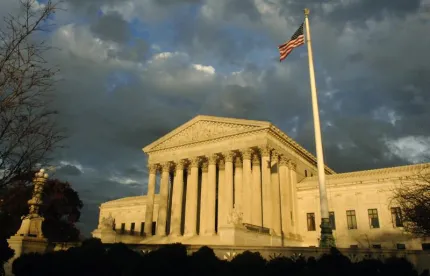The Supreme Court in USFWS v. Sierra Club, 2021 WL 816352 (U.S. 2021) evaluated a “draft” determination by the US Fish & Wildlife Service (USFWS) and the National Marine Fisheries Service (collectively, the Services) regarding whether a 2011 proposed rule by the Environmental Protection Agency (EPA) would jeopardize certain species under the Endangered Species Act (ESA). The court held the draft was a document that falls under the “deliberative process privilege” exception to the Freedom of Information Act (FOIA). Writing for the 7-2 majority, Justice Barrett in a conservative opinion explained that courts should not apply an “effects-based” test to determine whether the deliberative process privilege applies, but should instead determine whether the authoring agency treated the determination as final. This decision may make it more difficult for the public to obtain certain federal documents.
In 2011, EPA proposed a rule under the Clean Water Act that would affect the “design and operations of ‘cooling water intake structures,’ which withdraw large volumes of water from various sources to cool industrial equipment.”[1] As required by the ESA, EPA began consulting with the Services to determine whether the proposed rule would jeopardize certain protected species. EPA requested a formal consultation in 2013. The Services prepared a draft biological opinion that concluded the proposed rule, as written, would jeopardize certain species. The draft biological opinion was apparently never sent to the EPA, and instead the agencies continued to consult until a heavily revised EPA rule satisfied a subsequent “no jeopardy” final opinion.
The Sierra Club requested the ESA “draft” biological opinion and documents related to the 2013 version of the proposed rule under FOIA. The Services withheld the requested draft documents under FOIA’s exemption for “pre-decisional and deliberative process” privilege for non-disclosure of certain preliminary, not final documents.[2]
Documents that are embodied in the final decision or policy are releasable. Pre-decisional documents prior to a final agency position are usually exempt from disclosure and are also deliberative if prepared to help the agency formulate its position.
The issue is whether or not the draft biological opinion was final as to the earlier EPA rule-making. The Supreme Court held that the draft was not final and that it was, therefore, exempt from disclosure. The Court said a document is not final solely because nothing follows it, e.g., when the underlying proposal — such as a proposed rule — “dies on the vine.” The test is whether the document communicates a policy on which the agency has finally settled. The Court held that the draft biological opinion in this case was a preliminary view, not a final one. However, the Court stated that a label of “draft” is not determinative, but rather its context must be evaluated. The draft here allowed the wildlife agencies to change their views.
The Sierra Club contended the draft opinion had operational effects on EPA. The Court responded that this was a practical, not legal, effect. The test was not practical effect but whether the wildlife agencies considered the draft opinion final or not. The agencies’ decision-makers did not approve the draft. So they were drafts of drafts, according to the Court. They were not “secret [agency] law.”[3]
However, the Court emphasized that the draft documents must still be determined initially by the wildlife agencies for disclosure of reasonably segregable factual portions.
The dissent argued the draft opinion was to wildlife agencies a final view on the earlier version of the EPA rule-making. The wildlife agency practice is to work mainly with action agencies, such as EPA, through draft opinions to motivate such agencies’ ESA compliance before a final action is taken or a final biological opinion is issued. Thus, the majority in the dissent’s view elevated form over substance.
Since federal agencies may use deliberative process privilege objections in litigation, as well as in responding to FOIA requests, the case is significant as it indicates a strengthening of the privilege that shields pre-decisional agency documents from disclosure. The function and use of the agency document — e.g., whether or not it was a fact summary or a document that reflects formation of a final agency decision, that require disclosure — should be important.
[1] USFWS v. Sierra Club, 2021 WL 816352 at *5 (U.S. 2021)
[2] FOIA (5 U.S.C. § 552) mandates that federal agencies disclose agency records upon written request, subject to various procedures and exemptions. One exemption is the deliberation process privilege, a form of executive privilege. The privilege is to improve internal agency candor and frankness through advisory internal opinions, reconsideration, and deliberation once government policy and decisions are formed.
[3] Id. at *18.





 />i
/>i

